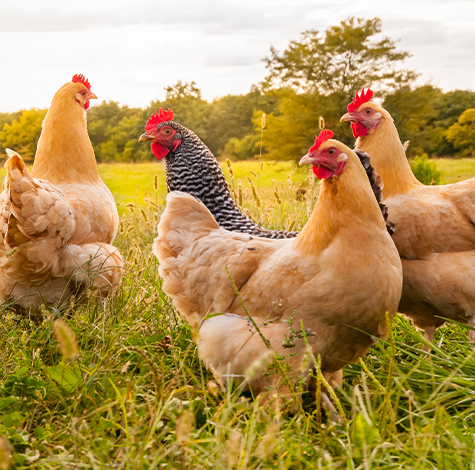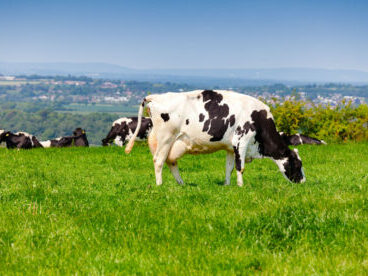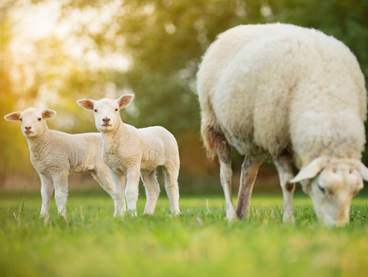Heat stress can be a real drain on dairy cow performance.
Help stop your cows being radiators on hot days
Heat stress can be a real drain on dairy cow performance, but a simple change to the diet can make a big difference to how well cows cope with hot and humid conditions as UFAC’s Mike Chown explains.
Cows begin to suffer symptoms of heat stress as soon as temperatures exceed 19°C (66°F), which means that virtually every day of the grazing season they will be affected. High humidity makes the effects of heat stress worse.
Heat stress is a real problem for cows because the rumen is effectively a 200 litre radiator. It is a huge internal generator of heat due to the fermentation of forages and cereals. This process is continuous and goes on every day of the year and, unlike us, they can’t turn the central heating off!
As soon as cows begin to suffer from heat stress there is a cascade effect which leads to reduced production, lower milk fat and a risk of poorer fertility. They become less active and have increased respiration rates. How often do we see cows standing up, sheltering under trees and hedges trying to keep cool?
The first thing to ensure is the adequate supply of fresh clean water. As a consequence of increased respiration and evaporation, their water requirements can increase by 40%. Adding water to the TMR is a practical option.
In periods of heat stress DMI can reduce by up to 30%, increasing the acidosis risk as the concentrate to fibre ratio increases. One quick and simple action is to change the energy sources in the diet, switching away from energy sources which are fermented in the rumen.
While it is important to maintain forage intakes to promote good rumen health and support butterfats, it is possible to replace rumen fermented carbohydrates like cereals with an unfermentable energy source, especially rumen-inert fatty acids and glycerine.
Highly digestible rumen-inert fats like Supa-Cream have a balanced fatty acid profile and are digested in the small intestines with no heat being produced. In addition, they have at least 2.5 times the energy content of cereals meaning they can boost the energy content of the overall diet, even if dry mater intakes are reduced. Rumen-inert fats also help reduce the risk of SARA and acidosis.
With 70% of a cow’s energy coming from glucose, it is important to ensure the diet contains sufficient levels of the precursors for glucose production. Glyco-Buff provides rumen-inert glycerine, an efficient source of glucose which won’t contribute to heat, plus a buffer which is essential as buffers naturally produced by cows reduce significantly due to decreased rumination.
Switching energy sources will help your cows better cope with heat stress and minimise effects on yields, milk quality and health.
Another concern is that heat stress increases the risk of oxidative stress and can cause dysfunctional inflammatory responses, both of which may reduce fertility. Research has shown there is a steeper decline in fertility in the summer compared with the winter.
One way to overcome the negative effects of stress on inflammatory responses is supplementing diets with marine sources of the polyunsaturated omega-3 fatty acids EPA and DHA. Fed in the breeding period, particularly during warm weather they have a stimulatory effect on pregnancy. To reduce oxidative stress ensure rations supply enough of these fatty acids along with Vitamin E and organic selenium.


 Back to News
Back to News 



